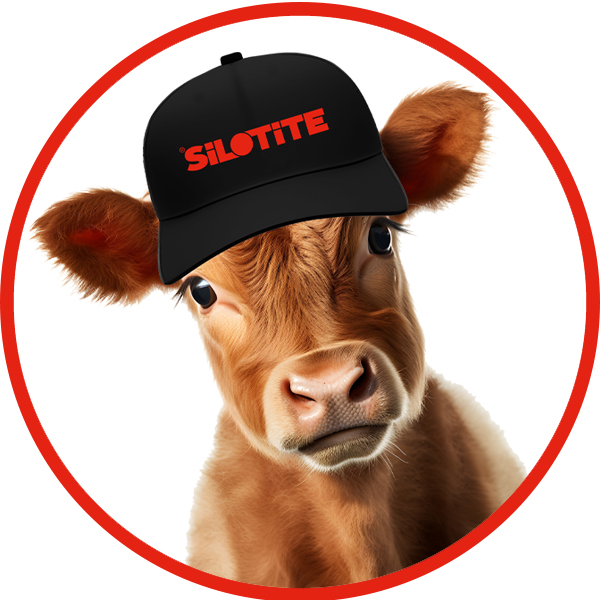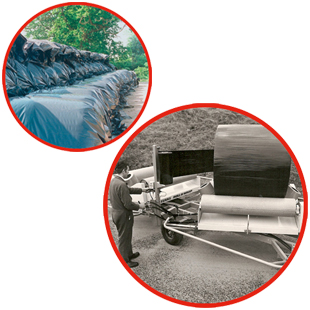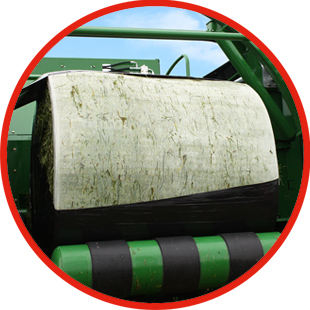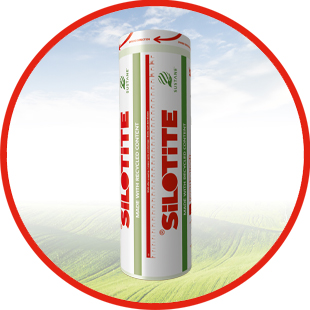As we begin to see longer days and warmer weather, the silage season will soon be upon us. You may be ready, but is your balewrapper still fit for the task?
Does your machinery need a clean? Are vital parts suffering from wear and tear? Months of non-use can lead to ceased parts.
Simple preparation can be the key to a successful silage season.
Watch our pre-season checks video here https://youtu.be/s7uNYbmCUjw?si=a4B81MBk6P3rDBlM

Since its inception in the early 1980s, round bale wrapping has undergone significant evolution. The introduction of Silotite® in 1984 revolutionized the process with its three-layer film, leading to rapid global expansion. By the early 1990s, bale weights had nearly doubled, and combi baler wrappers streamlined production to about a minute per bale. Recent innovations like the Film&Film system eliminate the need for netwrap, resulting in denser bales with improved protection and longevity.

Over 40 years, Berry's investment in Silotite films has driven advancements, including the transition to more efficient extruders and the introduction of Pro Technology, enhancing quality and sustainability. In the 1990s, investments replaced Berry’s 3-layer extruders with more efficient 5-layer lines. Further advancements in the 2000s introduced 7- and 9-layer extruders, enhancing the company’s film quality and range. These developments were made in tandem with baler technology advancements, often in collaboration with OEMs.

Looking ahead, Berry plans to continue evolving its products. Lloyd Dawson, Sales Director for the UK, Ireland, and APAC, highlights ongoing investments in research, development, quality control systems, automation, and new packaging lines. "One notable innovation is Pro Technology, which produces technically advanced films that surpass previous generations in quality, while also extending film length per roll, reducing thickness, and improving oxygen barrier properties. Additionally, new packaging developments, such as replacing traditional boxes with sleeves, reduce overall packaging weight by approximately 10-fold".

The latest product, SilotitePro1800 Sustane®, part of Berry’s B Circular Solutions range, incorporates 25% post-consumer recycled content, independently certified by RecyClass. This combination of lighter weight film and post-consumer recycled content results in a 24% reduction in environmental impact compared to previous packaging solutions.

In summary, the evolution of round bale wrapping over 40 years has been marked by significant advancements driven by Berry's commitment to innovation and sustainability. From the introduction of Silotite® to the latest Pro Technology and SilotitePro1800 Sustane®, Berry continues to lead the industry in quality and environmental responsibility.
Michael Hövel, Head of Sales for the N-EDACH regions explains the importance of correct cutting height.
“When the grass has grown sufficiently in the next few weeks, please take some consideration towards the cutting height of the grass for your swathes. To get high quality silage out of your bales, it is important to ensile good quality grass.
The first risk of cutting grass too low is that it increases the risk of soil contamination. Soil contains undesirable bacteria, such as Clostridia and Enterobacteria, which can negatively impact the silage fermentation process. Cutting too low also increases the risks of Listeria, Clostridia and Bacilli, which can cause animal health risks in all classes of livestock. The final reason to avoid cutting too low is that it will simply result in a slower forage recovery time and ultimately a lower annual forage yield.
We recommend setting mowers to cut at between 2.5 inches (6.5cm) and 5 inches (12.5cm) depending on ground conditions and density of the sward base”
